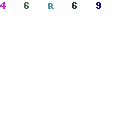Professor Rocha receives grant to attend Hess Seminar at U.S. Holocaust Memorial Museum

Foreign languages department professor Carolina Rocha received a grant to attend the Jack and Anita Hess Faculty Seminar at the U.S. Holocaust Museum. She hopes to propose a class to teach at SIUE about the Holocaust.
Foreign languages department professor Carolina Rocha has researched the Jewish-Latin American presence in Argentina in literature and films, and with the help of a grant, she hopes to create a class about the Holocaust.
Recently, Rocha received a grant to attend the 2014 Jack and Anita Hess Faculty Seminar, “Holocaust Literature: Teaching Fiction and Poetry” at the United States Holocaust Memorial Museum that will take place in January.
Rocha said she intends to gather materials there and learn techniques of how to present the topic of the Holocaust in the classroom at SIUE. There are no classes that currently focus on the topic at the university.
“I hope to propose a class on the Holocaust that could be part of the peace studies minor,” Rocha said.
The U.S. Holocaust Museum conducts the Hess Seminar and other faculty seminars to strengthen and support teaching about the Holocaust at North American institutions of higher education. Rocha’s funding for the seminar comes directly from the museum and will allow her to engage with other scholars engaged in research topics related to the Holocaust and contemporary approaches to teaching it.
“The event is named ‘in honor of two individuals who believed passionately in the power of education to counter prejudice,’” according to the Jack and Anita Hess Faculty Seminar website. Jackob Hess narrowly escaped Hitler’s Germany by fleeing from Sprendlingen to the United States. Many of his family members who remained in Germany perished at the hands of the Nazis.
Foreign Languages Department Chair João Sedycias said he is supportive of the research activities Rocha engages in.
“Along with the Sephardic diaspora [dispersal of the Jews] in Latin America brought about by the Spanish and Portuguese Inquisition, the effects of the Ashkenazi Holocaust in Latin America is an important topic of study for SIUE professors and students,” Sedycias said. “The Department of Foreign Languages is pleased that Dr. Carolina Rocha is undertaking this research. This area of study should provide new dimensions for discussion at our institution, as we respond to our Chancellor’s charge to increase international awareness and presence in our curriculum.”
According to Rocha, she believes in the context of diversity and ethics studying the Holocaust is crucial especially as genocides occur in the world.
“At SIUE, we’re talking about diversity and ethics so learning and teaching about the Holocaust is a responsibility regardless of religious backgrounds; and we also need to learn about the genocides,” she said. “Attending this seminar is a first step in that direction.”
One thing about the Holocaust, according to Rocha, is that it affected not only Eastern European Jews, but those who migrated to Latin America both before the Holocaust and after their release from the prison camps.
“Even though Latin America is geographically far from where the Holocaust took place, there is still a connection between the Holocaust and the cultural literary production of Latin America,” Rocha said.
She said the last wave of Jewish immigrants came to Latin America between 1939-1945 yet the effects of them experiencing “unspeakable acts of violence” had a huge effect on many countries and following generations.
“They’re displaced. They have traumas within the families…there’s tension of remembering and forgetting. It’s the past but it comes like a haunting presence.” Rocha said. “The ripple effects of the Holocaust are also felt in Latin America.”
One documentary she studied before the conference was about a grandfather who committed suicide after experiencing the Holocaust affecting the second and third generations.
Interest in Jewish-Latin American topics is evident around the world, according to Rocha. Though Brazil has a population of 200 million, the country has the ninth highest Jewish population in the world. Rocha said it is a fascinating field that she is currently exploring.
During the first week of November Rocha was invited and presented a lecture on Jewish Argentine women in contemporary Argentine cinema at the University of Siegen in Germany. That and her recent endeavor is a continuation of a National Endowment for Humanities (NEH) workshop that Rocha attended in 2007 to study about the Jewish population in Buenos Aires, Argentina.
Rocha said her grant award was a team effort with Patience Graybill at the Graduate School as well as the College of Arts and Sciences deans who supported her grant application to the Hess Seminar.
Filed Under: Foreign Languages & Lit • General CAS Stories












